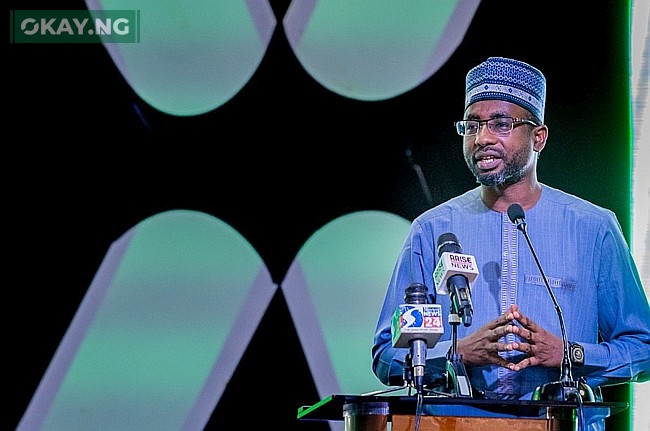Kashifu Inuwa, CCIE, the Director General of the National Information Technology Development Agency (NITDA), has underscored the potential for increased efficiency and effectiveness in Nigeria’s security sector through collaboration between the security industry and the startup ecosystem.
Inuwa made these remarks during a meeting with the Commandant of the National Institute for Security Studies (NISS), Alhaji A. S Adeleke, represented by Deputy Commandant D. E Egbeji. The visit included faculty members and participants of the Executive Intelligence Management Course (EIMC 17) with the theme “Artificial Intelligence, Security, and Emerging Economies in Africa: Challenges and Prospects,” held at the eGovernment Training Centre (eGTC), Public Service Institute of Nigeria (PSIN), Kubwa, Abuja.
Highlighting the distinct approaches of the security and information technology (IT) sectors, Inuwa stressed the transformative potential of collaboration to harness opportunities offered by IT, including Artificial Intelligence (AI), the Internet of Things (IoT), and other emerging technologies to bolster the security sector.
“The way you do things in Security is different from the way we do things in the Information Technology (IT) sector but if we can work together, we can make things better by utilising the numerous opportunities that IT offers leveraging AI, IoT, and Emerging technologies in strengthening the security sector,” Inuwa stated.
Addressing common misconceptions about AI, Inuwa emphasized its role in simplifying tasks, providing quick answers, and offering solutions. He categorized AI into three types based on capability: Narrow Intelligence, General AI, and Deep Learning AI, each serving distinct functions.
Expanding on AI functionality, Inuwa outlined four categories: Reactive Machines, Limited Memory, Theory of Mind, and Self-Awareness, detailing their respective capabilities and implications.
In response to the NITDA’s commitment to AI growth in Nigeria, Inuwa highlighted initiatives like the National Centre for Artificial Intelligence and Robotics (NCAIR) and the ongoing development of the National Artificial Intelligence Policy.
Expressing openness to strategic collaboration, Inuwa reiterated that such partnerships align with the NITDA Strategic Roadmap and Action Plan (SRAP 2.0), particularly the pillar focused on forging strategic partnerships and collaborations.
In his remarks, Commandant NISS Alhaji A.S Adeleke expressed the institute’s intent to glean insights from NITDA’s experience, seeking to inform an executive brief for President Bola Ahmed Tinubu GCFR to aid policy formulation and implementation.
Dr. Aristotle Onumo, the Director of Corporate Planning and Strategy at NITDA, provided an insightful overview of the agency’s evolution and pivotal role in shaping Nigeria’s information technology landscape, showcasing its commitment to innovation and technological advancement.












